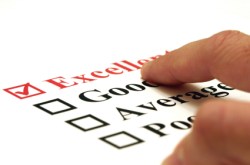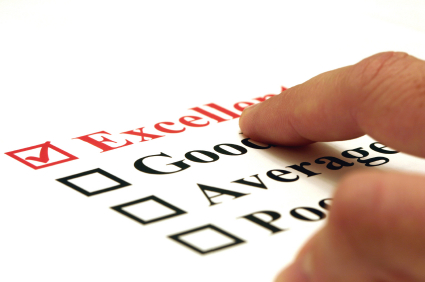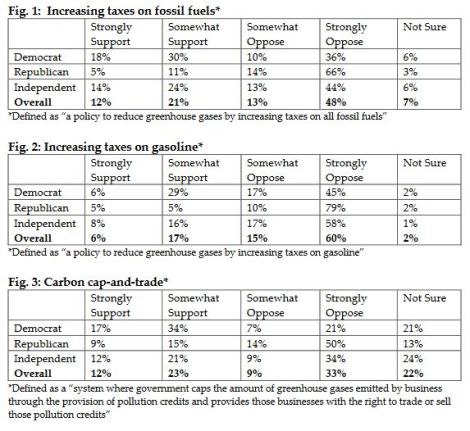 People involved in climate politics are always throwing polls at each other purporting to “prove” that the public likes this policy or hates that policy or wants this or doesn’t want that. Everyone, at every point on the political spectrum, has a set of polls showing that the public supports their positions. I’ve done quite a bit of poll-pumping myself. The reality is, though, that polling on these issues tells us very little about how the politics will unfold.
People involved in climate politics are always throwing polls at each other purporting to “prove” that the public likes this policy or hates that policy or wants this or doesn’t want that. Everyone, at every point on the political spectrum, has a set of polls showing that the public supports their positions. I’ve done quite a bit of poll-pumping myself. The reality is, though, that polling on these issues tells us very little about how the politics will unfold.
To see why, let’s take a look at the newly published results of Brookings’ Spring 2012 National Survey of American Public Opinion on Climate Change [PDF].
Here’s how the results are being pitched: The public rejects the climate policies that economists prefer — market-based options like carbon pricing through a tax or cap-and-trade system — and embraces the climate policies that give economists hives, namely mandates, standards, and regulations. Also, the results show a considerable partisan divide.
Couple things to say about this.
Public: pro-good, anti-bad
First, it is a dismal fact for wonks and economists that the public does not seem to like their preferred policies, but it is definitely a fact:
As you can see, these options split Dems down the middle but are intensely opposed by Independents and Republicans.
By contrast, all those meddlesome policies that offend economists with their inefficiency — a national renewable energy mandate, federal vehicle fuel economy standards, and federal greenhouse gas regulations — received majority support (the first two even from Republicans).
It’s important to understand why public opinion shakes out this way. I don’t think it’s quite right to say the public “disagrees” with wonks; that implies that the public is familiar with the evidence and has weighed the alternatives. Which … no. Most of the public doesn’t know the first thing about any of these policies — whom they might affect, what they might accomplish, how their costs compare to their benefits.
What most poll-taking members of the public understand about a given climate policy is how it sounds on a poll. So, individually and collectively, they gravitate toward policies that sound like more of good things and less of bad things. A policy that says “build more renewables” sounds good. A policy that says “make less pollution” sounds good. “Make cars more efficient”? Great!
Carbon pricing does not sound like more of a good thing or less of a bad thing. It sounds like more of a bad thing: an additional cost, a penalty, government taking something. It is possible to explain to people, if you have a few minutes, why carbon pricing is an economically efficient way to reduce carbon pollution. But — and this is crucial — you don’t have a few minutes! In this media environment, communicating to the public about policy, you’re lucky to get seconds, or any time at all.
Carbon tax advocates are always saying their policy would be more popular if the public was told what would be done with the tax revenue, that it would be invested in renewables, returned as rebates, or used to reduce another tax (a “tax swap”). The Brookings guys note, “this version of the NSAPOCC did not include any specifications on possible uses of revenue from such a tax, which appears to have some impact on support levels.”
But let’s not fool ourselves. If spending the revenue on renewables is popular, it’s because spending on renewables is popular. If spending the revenue on rebates is popular, it’s because getting checks in the mail is popular. If using the revenue to lower taxes is popular, it’s because lowering taxes is popular. At no point does the tax itself become popular. (The cleverness of bundling unpopular policy with popular policy is often overestimated by the bundlers. All Obama’s major initiatives, from healthcare to cap-and-trade to financial reform, have tried it; the result, generally speaking, is net unpopularity.)
Anyway, this is obviously not an argument against carbon pricing, of which I am a dutiful proponent. But advocates need to squarely grapple with the fact that it sounds unpleasant to the public on first blush, and in the vast majority of cases, there isn’t more than one blush.
Poll in a bubble
Second, it’s always worth remembering that the way the average member of the public is exposed to policy options “in the wild” is radically different from the circumstances of taking a poll.
In a poll, policy options are almost always stripped of social cues and associations, information about costs and trade-offs, and political/historical context. They are presented in isolation: “Do you like this thing?”
That is not at all what happens out in the world. The most salient thing about a policy option for most people is who presents it, who supports it, what their peer groups and tribes think about it. In the overwhelming majority of cases, it is these social cues — not independent weighing of evidence and arguments — that guide public reaction.
The pollsters did get at that a bit. They asked about “federal regulations” to reduce greenhouse gases and got 42 percent approval from Republicans; when they rephrased the same thing as “the Obama Administration’s current policy to use the Clean Air Act,” Republican support fell to 28 percent. When Dems heard Obama’s name next to the policy, their support became more intense. Obama’s name, in an of itself, serves as a heuristic.
And that’s just a hint of the effect social/tribal/partisan cues can have on people’s responses. Out in wild world of media saturation, those few voters who hear about climate policies at all are likely to hear about them from partisan sources, being spun one way or the other. They won’t hear “build more renewables” in isolation, they’ll hear it pitched as new taxes and big-government mandates and higher energy prices. There are messages and counter-messages, facts and counter-facts, and for the average low-information voter, the easiest heuristic to use is party or tribal affiliation (“cultural identity,” in Dan Kahan’s terms). When taking policy surveys, people are deprived of that heuristic.
Poll schmoll
These features of policy polls — their lack of trade-offs and counter-messages, their lack of social context — make them a poor guide to the political economy of energy. High support for a policy in a poll says very little about how that policy will fare when it’s introduced to the political scrum, identified with a particular party and set of advocates, and attacked by prominent figures on the opposing side. For a politician or movement trying to push a policy, high poll numbers can be a rhetorical advantage, a slight boost in the power struggle, but that’s about it. No one should fool themselves that good poll numbers are an indicator of deep or enduring public support.




